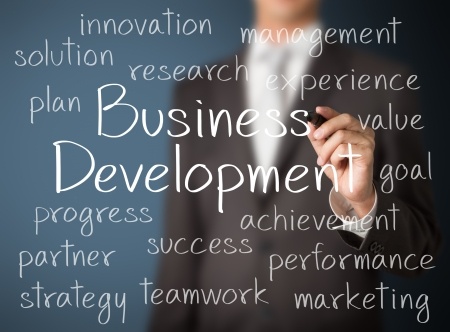 One of the critical shifts we highlight in our 10 Critical Shifts in the Market for Lifelong Learning briefing is the growing need for organizations to invest in sales skills. Specifically, we write:
One of the critical shifts we highlight in our 10 Critical Shifts in the Market for Lifelong Learning briefing is the growing need for organizations to invest in sales skills. Specifically, we write:
In an increasingly competitive marketplace, it will be difficult for most organizations to thrive solely with retail, business-to-consumer sales of their educational products. They will need to be able to sell in quantity to other organizations (e.g., corporations, health systems, and government agencies). And they will, in many instances, benefit by being able to deliver customized (and premium-priced) solutions to these organizations. Doing this requires a level of selling skill most organizations simply don’t possess now.
For many organizations this work will go beyond pure selling and merge with what would typically be characterized as business development.
A good business development person needs to know how to sell – that is, to articulate the value of an organization’s products and services effectively and convert value perception into actual purchases – but she also needs to be able to do more. She needs to be a steward of the overall business strategy and have the ability to actively cultivate the relationships needed for opening new channels and more broadly or deeply reaching the organizations prospective audience for learning and education offerings. We have seen numerous situations in which this level of skill is necessary. For example:
- Academic Relationships: Both for sourcing content and for delivery of content to college and university audiences, many organizations would benefit from creating or better developing relationships with key academic institutions. This may mean a single, highly-respected university program in your field, or it may mean tapping into the vast network of community colleges and/or technical schools in your market. (Listen to NIGP CEO Rick Grimm discuss the importance of academic relationships for his organization.)
- Workforce Development: Truly having an impact on workforce development almost always means forging academic relationships, as suggested above, but it also means developing corporate and government relationships and, in general, facilitating the optimal network for connecting new and prospective employees in your industry with your learning experiences. (Listen to ASAE board chair Scott Wiley talk about the importance of workforce development.)
- Health Markets: Most organizations selling to doctors, nurses, and allied health professionals would benefit from developing relationships with the range of institutions that employ these people. Most of these institutions have a need for educational content for their employees, and working with them is typically much more rapid path to reaching and impacting an organization’s target audience. (Listen to AACN CEO Dana Woods talk about the success of her organization’s ECCO program.)
- International Expansion: For organizations that want to expand successfully into other countries, strong business development skills are usually not optional. The potential complexity of operating in other cultures, and often other languages, cannot be understated. At the same time, international expansion often represents a huge opportunity even for organizations that do not currently think of themselves as international. (This is another point we cover in the 10 Critical Shifts briefing.)
- Organizational Alliances: Very few organizations operate in isolation. In most cases there are similar, and sometimes directly competing organizations in the same industry or field. These other organizations often represent “low hanging fruit” when it comes to expanding an organizations audience for educational offerings, but of course this is also territory that has to be negotiated carefully and with strong strategic sensibilities. Just the sort of challenge a good business development person relishes.
Those are just a handful of key areas in which a a good business development person (or, for very large organizations, team), can generate significant value.
Now, I realize a key objection to all of this will be that most organizations don’t feel they have the budget for adding a business development person. And, admittedly, good ones don’t come cheap.
But I would argue that most learning and education businesses that seek to thrive will ultimately do themselves more harm than good by not having someone on staff who can devote most of his time to business development. You just can’t make serious progress in any of the areas noted above without serious resources and effort. Moreover, a good business development person should be able to – and should expect to – return many multiples of his cost in additional revenue for the organization.
So, as you consider your strategy for the coming year or two, be sure to give some thought to the role that business development might play in increasing your overall capacity and contributing to your marketing efforts (both of which are domains within the Learning Business Maturity Model). It is very likely an area that could use some initial or additional investment.
Jeff
The post The Need for Business Development for Your Learning Business appeared first on Tagoras.



















